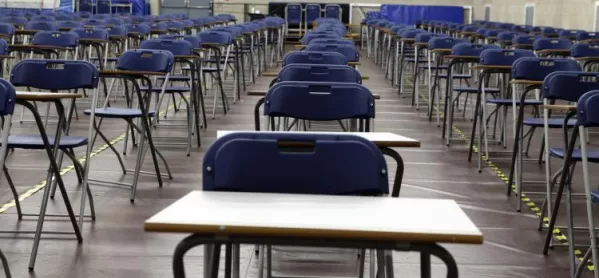Ofqual has warned schools about people claiming to have live exam papers for sale on social media.
It has urged schools to tell their pupils not to be “distracted” by such claims, and said that if pupils got involved, the individuals “could face sanctions”.
The exam regulator has written to schools today two weeks after GCSEs, AS and A level exams began.
Read: A-level Edexcel maths paper leak referred to prosecutors
Read: Exam cheating commission wants to ‘future proof’ the system
Expert view: ‘Without action, exam cheating will continue’
In the letter, Sally Collier, the chief regulator, writes: “We know that students often take to social media to voice their views about exam papers.
“This year already we have seen several instances of individuals on social media claiming to have copies of live papers, and in some cases offering them for sale.
“I urge you to remind your students not to be distracted by such claims, or to initiate them.
“Exam boards take such matters very seriously and any students found to be involved could face sanctions.”
Earlier this month, AQA GCSE and AS-level papers were stolen from a vehicle, triggering a police investigation and forcing the board to issue replacement papers.
And in April Pearson - the owner of the Edexcel exam - announced that police had made progress in relation to two leaks of A-level maths papers in 2017 and 2018.
An independent commission launched by the Joint Council for Qualifications - the body which represents exam boards - is currently looking into the issue of exam malpractice.
In today’s letter, Ofqual says it will continue to use its comparable outcomes approach to maintain standards compared to previous years, and warns against trying to second guess grade boundaries.
Ms Collier writes: “[Comparable outcomes] provides flexibility to account for changes in performance of the student cohort, so the proportion of grades awarded is not fixed. Despite this, we know that some people will try to predict where grade boundaries will be set. Please treat any such predictions with caution.”
This summer is the first year when Ofqual could use the national reference test to help set GCSE grade boundaries in English language and maths.
It also marks the debut of the penultimate tranche of new GCSEs and A-levels, with a range of reformed subjects being sat for the first time, such as GCSE Italian and GCSE and A-level design and technology.
The letter ends with a warning about potential variation in schools’ year-on-year results.
“Generally, when qualifications change, we expect that there might be more variation in school and college results. However, in 2017 and 2018 we saw normal levels of variation, including in those subjects that were reformed. We concluded that schools and colleges had coped well with the changes. But it is still possible that some schools and colleges could see more variation than usual this year.”




